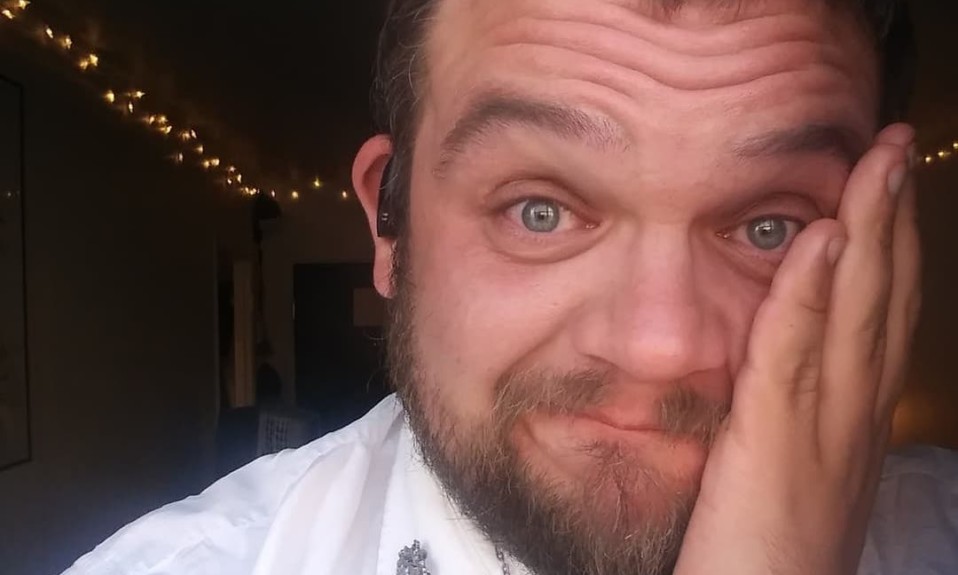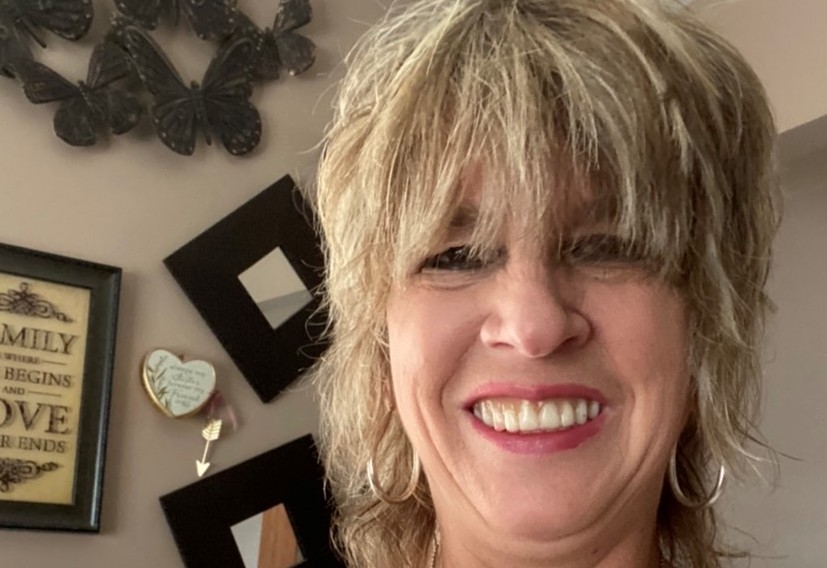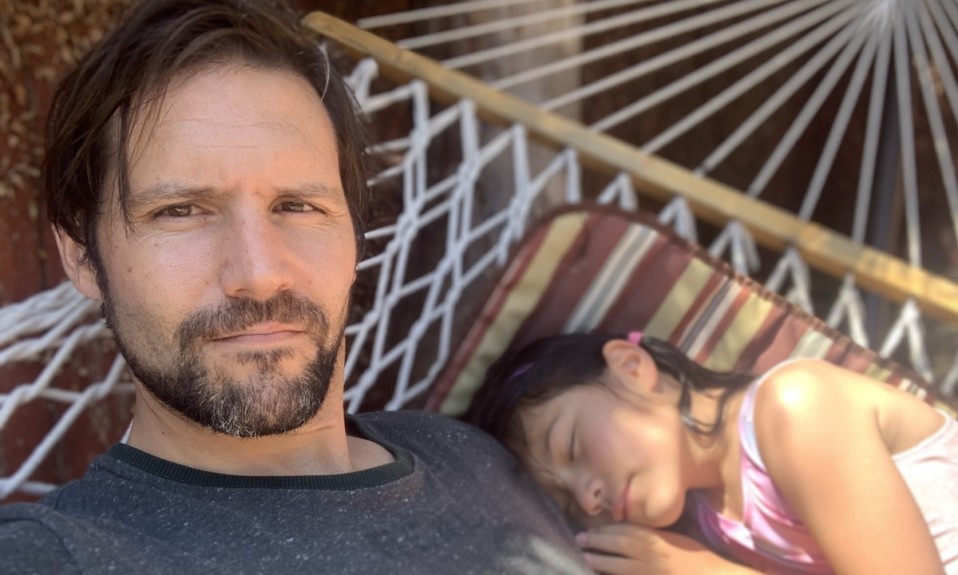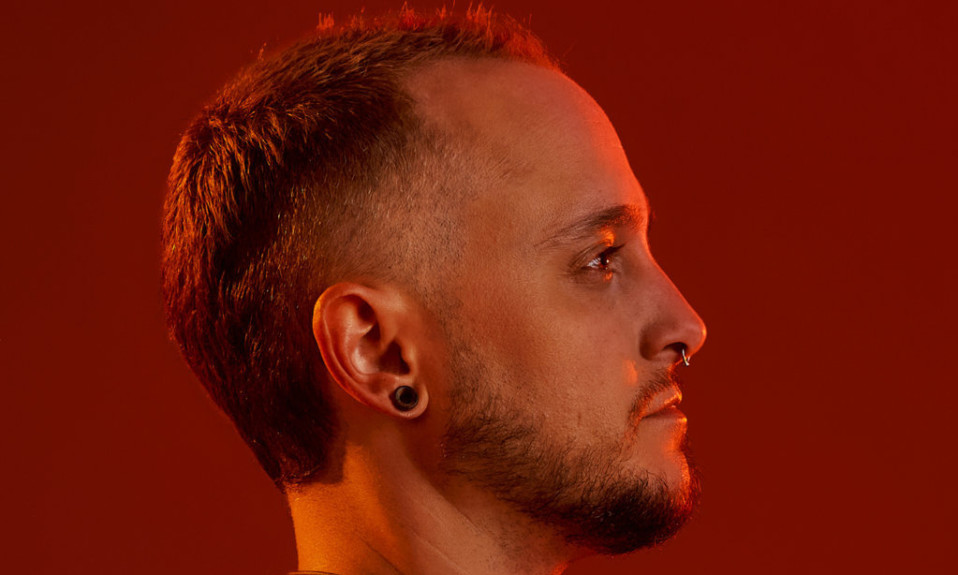When Gaga—a queer and non-binary individual—found genuine support, they finally were able to take on their addiction issues
Editor’s note: “The Turning Point” is a column focused on the moment or moments when our subjects realized they needed to seek addiction treatment.
By Veronica L. Holyfield
“It doesn’t matter if you love him or capital H-I-M / Just Put Your Paws Up / ’Cause you were born this way baby”
Those lyrics by Lady Gaga in the song “Born This Way” became the place where Gaga, aka Jon, was able to begin a spiritual journey with a higher power. They are queer and non-binary, and growing up in the Catholic church came with a lot of shame, guilt, denial and hiding. It also, however, came with a sense of community. Gaga was surrounded by addiction and violence: Their mom was an alcoholic and their dad a methamphetamine user, and the church became a safe place away from home.
Gaga’s family moved to Wisconsin without them, leaving them with grandparents, where they experienced even more domestic abuse. After a restraining order was in place, Gaga finished the last four months of their senior year of high school in a shelter for adolescents. That’s when they went to a private liberal arts college in Wisconsin and quickly learned how to party.
I knew I loved myself, but I didn’t think I needed to show myself constantly how much I love myself. It’s scary, but awesome.”
—Gaga
“They have a policy and a philosophy on drinking,” Gaga explains about the college. “The policy is, ‘No one under 21 can drink,’ but the philosophy is, ‘We’re all adults at a higher learning space, and everyone should be able to drink responsibly.’ So, we could drink on campus and throw parties, and they would have security that monitored us. That’s where I really learned to drink.”
Living Authentically with Nowhere to Go
In the summer of 2010, they were introduced to the singer Lady Gaga. It was because of lyrics like “I’m a free bitch, baby” on the song “Bad Romance,” and “Everyone is beautiful in their own way” in “Born This Way,” that Gaga adopted the pseudonym and began to embrace and own their sexuality. Wanting to be as free in expressing themselves as Lady Gaga, they came out to their family as gay at age 20.
While they were confident in their choice to stand in truth and authenticity, Gaga was immediately disowned by their father and not permitted to see the rest of the family, including their younger brother, whom they had essentially raised because of the addictions in the family. Shortly after Gaga came out, their father passed away, yet they were not allowed to attend the funeral, to avoid the drama with the rest of the family. After that, Gaga’s drinking became so heavy that they started failing classes and ultimately were kicked out of college. They got a job at an overnight youth summer camp but were experiencing a new level of depression due to their family and school situations. On off days from work, Gaga would binge drink, which created problems for the camp owners and the rest of the counselors.
“They didn’t want me to come back for the next year because I was such a shitstorm,” Gaga says. “I got my own place in Minneapolis, but that quickly fell apart because I couldn’t afford my habits of smoking [weed] and drinking with a minimum wage job.”
After losing the apartment, their friend offered to let them live with her. However, after being arrested and placed on a 72-hour involuntary hold, Gaga decided to move to Colorado and live with a friend there. Things there didn’t get any better. Gaga committed themself to a psychiatric unit for three weeks, transitioned into a halfway house, and was in a homeless shelter for nine months until they could get an apartment through program assistance.
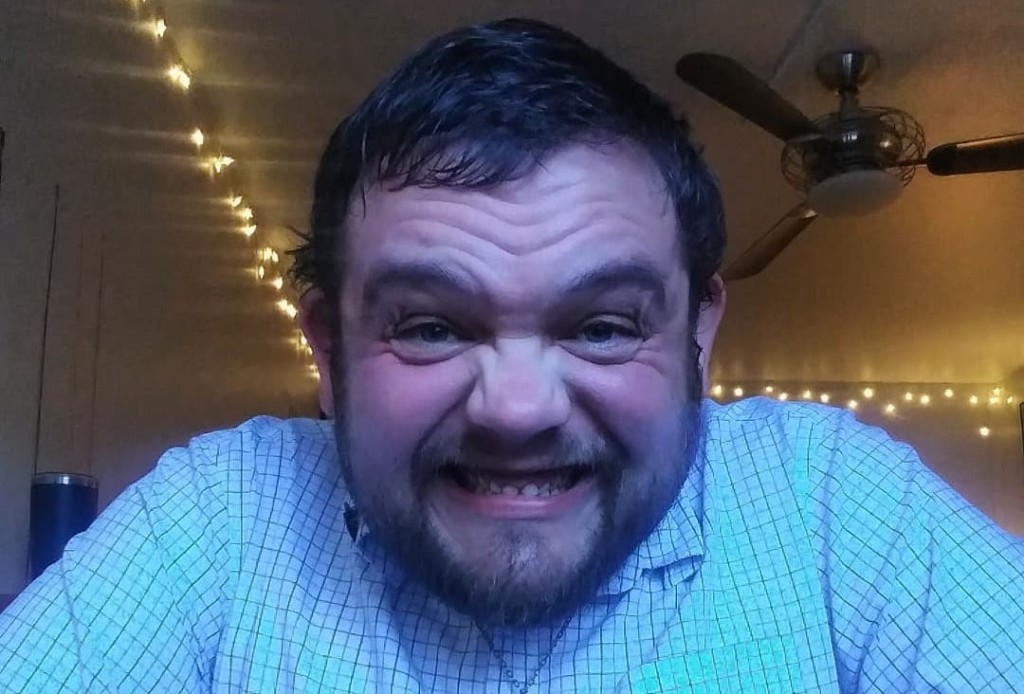
Gaga began working at a youth day camp and was promoted to director of their own program. But it didn’t take long for Gaga’s drinking and smoking weed to greatly impact their work; they would binge drink over the weekend and began drinking on the job. It was only a matter of time before that job disintegrated, too.
“My lease was almost done at the place that I had, and I hadn’t saved any money to move anywhere and didn’t think I could even afford an apartment at all, so, I had been pretty set up to kill myself,” Gaga admits.
Fortunately, a neighbor intervened and offered Gaga a place to live, rent-free, as long as they babysat her children while she was out working as a prostitute. With a roof over their head but no income to pay for food or their drinking or drugging, they got a job at a coffee shop. Eventually, they moved in with a boyfriend, under the condition that they could not drink inside the house. The rule didn’t act as an effective deterrent. Their drinking progressed to all day, every day. After the relationship ended and they were fired from their coffee shop job, Gaga maintained a diet of Mike’s Hard Lemonade and weed for nearly eight straight weeks.
The Turning Point
Even though they weren’t ready to quit drinking and smoking, Gaga started attending AA meetings. They knew that it was the only way to clutch onto what little bit of life they had left. Although they had alcohol in their backpack and would attend meetings intoxicated, and not all the meetings felt welcoming and safe, Gaga kept trying. Yet sipping on Mike’s Harder Lemonade while having phone meetings with sponsors, Gaga was nearly convinced that nothing would work and was prepared to give up. They hung on long enough, however, to find some LGBTQ support groups that were affirming and accepting.
“I didn’t think there was a way to be okay,” Gaga says. “It wasn’t until I met queer AA. I was pretty convinced that if it didn’t work, I was going to kill myself. I didn’t think that it could work until I found my current sponsor, because he let me make the program mine instead of trying to fit me into his box of what his program was.”
Finally, Gaga was able to string together days, weeks and months of sobriety. At six months, they came to believe that they were, in fact, capable of living a life free from alcohol. While they were still using cannabis as a way to numb, they had stopped the trauma of the cycle with alcohol as they neared the one-year anniversary of their last drink. It was at that point that Gaga knew they needed to confront their addiction to weed.
“When I joined, there was the concept of, like, only tackling one thing at a time, and my theory was, ‘Smoking weed helps you stop drinking, but if it ever gets in the way of your spirituality, then you need to readjust. Right before my one year of not drinking, I realized I was making myself depressed with the alcohol but making myself anxious with the marijuana,” Gaga says.
I’m not a dry drunk in the room—I’m not worried about when I’m going to get high next or when I’m going to get drunk next.”
—Gaga
Now, with more than one year free from alcohol and more than one month without using, Gaga has their hope, community and life back. Staying planted in the mantra of “one day at a time” and understanding their vulnerability is what keeps them sober. And with a group of queer folks who care deeply for Gaga’s success, they are able to maintain full-time employment and a stable home life, and take pleasure in the little things, like self-care.
“Now, it’s making sure I cover my bases in the morning and I’m taking care of myself in ways that I never thought I would,” Gaga says. “I knew I loved myself, but I didn’t think I needed to show myself constantly how much I love myself. It’s scary, but awesome. It’s the greatest gift I can give myself because it ends up giving back. It gives me the opportunity to show up in ways that I’m prepared to help other people, and I’ve had newcomers in the last four months reach out to me particularly. I’m not a dry drunk in the room—I’m not worried about when I’m going to get high next or when I’m going to get drunk next. I’m going to wake up, feed myself and show myself that I love myself.”


